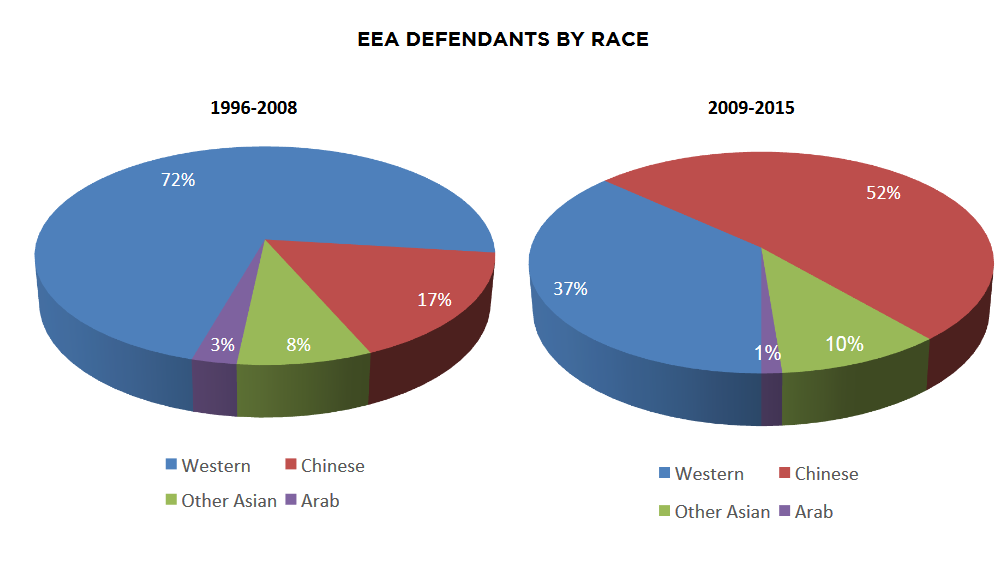By Louis Chan
AsAmNews National Correspondent
A new study indicates Asians in America may be the targets of unfair and increased racial prejudice in a federal government crackdown on thefts of economic trade secrets.
The study from Andrew Kim of the South Texas College of Law was published by the Committee of 100, a group of 100 Chinese American leaders working for improved U.S. China relations.
The study revealed a high percentage of Asian defendants and that Asian defendants received tougher sentences. Kim reported 62 percent of all people charged under the Economic Espionage Act since 2009 have been Asian. 22 percent of those Asians was never convicted.
Out of 136 cases found, 48% were allegedly carried out to benefit U.S. companies. 34% were intended to benefit Chinese entities. None involved Russia.
The average sentence for defendants with Western names was 11 months. That’s compared to 25 months for Chinese defendants and 22 months for all Asian defendants.
Frank Wu, chair of the Committee of 100, called it a “pattern and practice of selective and discriminatory treatment.”
“It is rare to have such strong indications of bias. This data should be the beginning of the discussion, not the end, because while it is not conclusive, it should raise alarms.”
Kim in his executive summary says “these findings are consistent with concerns that the Department Of Justice has improperly targeted, engaged in racial profiling of, and used biased judgment with respect to Asian Americans and Asian nationals suspected of espionage. Without further information, however, this study cannot rule out innocent explanations for these racial disparities. Rather than conclusions, this study raises a number of troubling questions that can only be answered through an independent and transparent investigation of DOJ espionage investigations.”
David Harris, University of Pittsburgh School of Law, pointed to the disparity in sentencing, calling it a “red flag.”
“The federal sentencing system is designed to ensure that defendants who commit similar crimes receive similar sentences, regardless of race, gender, or religion. This sentencing disparity is an obvious target for further study; if the finding of disparity holds up after controlling for the Federal Guidelines factors that were unavailable to Professor Kim, this would mean that we might indeed be seeing not just unexplained disparity, but discrimination,” Harris said.
Janeanne Murray of the University of Minnesota Law School was troubled by Kim’s findings.
“Kim corroborates and deepens the existing insights about implicit bias in the criminal justice context, demonstrating the potential for bias in a range of less traditional cases (beyond drugs and terrorism, for example) and among groups outside the traditional black-white paradigm of racial justice. In other words, implicit bias in a justice system that prizes accuracy but essentially delegates the accuracy judgment to all-too-
human prosecutors is likely far more pervasive than we are prepared to admit.”
AsAmNews has Asian America in its heart. We’re an all-volunteer effort of dedicated staff and interns. You can show your support by liking our Facebook page at www.facebook.com/asamnews, following us on Twitter, sharing our stories, interning or joining our staff.




